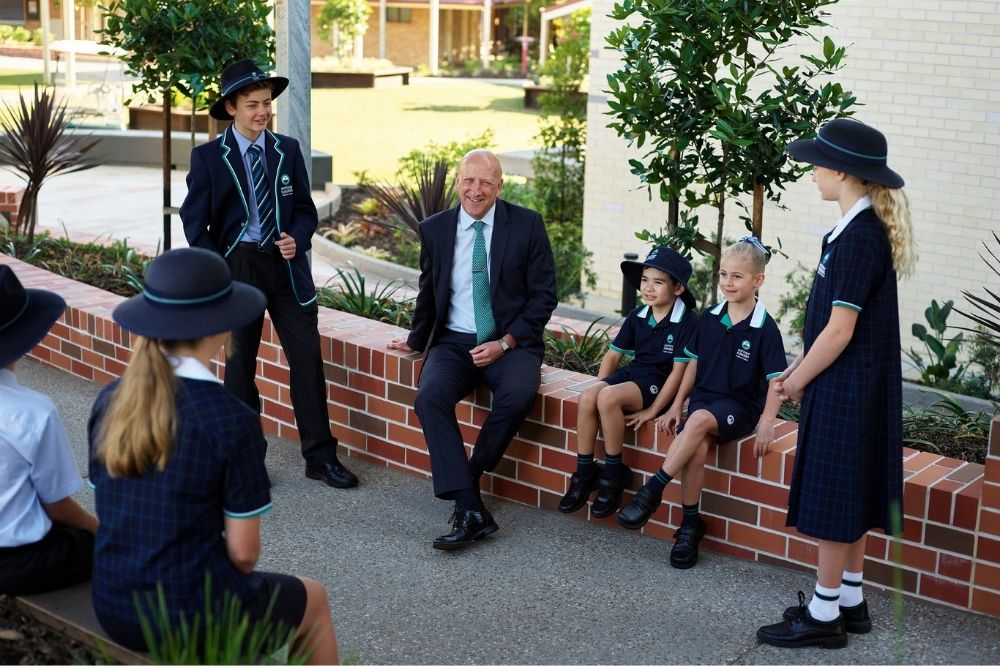
Since Matthew Flinders Anglican College (MFAC) was founded in 1990, the College has grown from an enrolment of 160 students to over 1,380 students in 2022.
This growth, while exciting, has presented some interesting challenges that are still being navigated as staff and students emerge from a pandemic that, hopefully, we’ll see the back of before this year is through.
Whether it’s meeting staffing needs amid high student growth, keeping a finger on the pulse of staff and student mental health or making sure the campus is equipped to ride out further disruptions in the future, MFAC principal, Stuart Meade has his work cut out for him.
Below, The Educator speaks to Meade about the College’s year so far, and how it will be supporting students and staff in the important areas of mental health and wellbeing, professional development and cybersecurity.
TE: This year is shaping up to be another big one for school principals across Australia. Drawing from what you’ve observed from Term 1 so far, what kind of year is 2022 shaping up to be for the College?
Given that in Southeast Queensland, our first term commencement has been delayed by two weeks due to COVID and another two days have been lost due to a wet weather event, our year at Flinders is going to be one of re-establishing routines. It is also important to re-connect with our community after the COVID restrictions and to re-establish the culture that is so important in the school community. The cancellation of College events in the past 18 months has reduced the number of signature events which build student culture. We want to ‘magnify the good’ in all we do this year.
TE: What approach are you taking to improving the mental wellbeing of Flinders’ staff and students this year?
Wellbeing and the pastoral care of our students and staff is a key focus area for us at Matthew Flinders Anglican College. The pandemic is certainly testing us all, to be more resilient and optimistic, and to reach out and rely on our support crews. Our students and staff throughout the College are encouraged to lean on the strong pastoral care network we have at Flinders. In the Secondary School, we have developed our Flinders Well4Life Program, which began in 2021. It is informed by current research and aims to equip our students with the character traits and skills to lead ‘well lives’ within and beyond the school campus.
TE: Is there a particular professional development focus you are encouraging for staff this year? If so, what is it, and how is the College helping teachers improve in this area?
In a P-12 school, professional development can be both systemic and tailored for sub-schools or small teams. In 2022, we have a number of key focus areas for College teaching staff. The Primary School has engaged in a two-year project with Corwin Australia to become a Visible Learning School. This provides professional learning for all staff in relation to high impact teaching and learning strategies. Inherent within the project is the articulation and development of learning dispositions which enhance student ownership of their learning. Our Secondary staff engaged in workshops and seminars at the commencement of the year with Glen Pearsall and Andrew Douch, focusing on engaging instructional practice, feedback, assessment, tools for differentiation and tips for effective remote teaching. It reflects our quest for continuous improvement and to build on the culture of learning that pervades the campus.
TE: An increasingly important area of education in Australian schools is cybersecurity. What are the main cyberthreats you see for Australian schools, and what is Flinders’ approach to addressing these?
There is no doubt that schools in Australia must take cybersecurity seriously. At Flinders our IT Team is committed to a vigilant and proactive approach to cybersafety. Therefore, the College’s IT environments and processes are reasonably mature and the threat of unauthorised access or privileged access from external attackers and internal users is reduced. Flinders has engaged a highly qualified and experienced vendor partner who will identify, mitigate and respond to cyber threats on our behalf. We are also implementing a number of the vendor’s recommendations to further mitigate any cybersecurity risks. Our staff are regularly educated on security issues, such as how to identify and manage threats through phishing and spam, for example.


